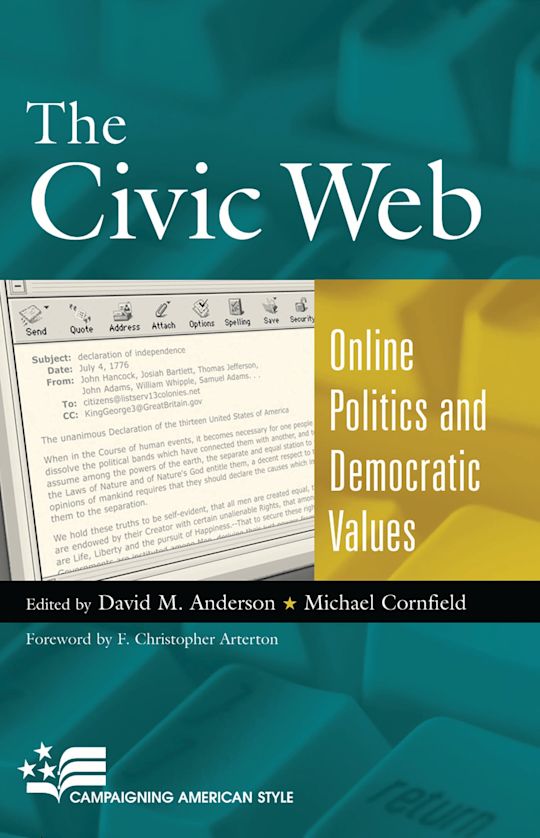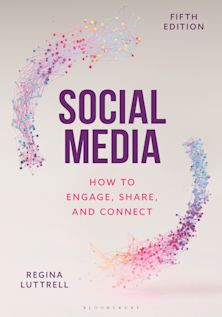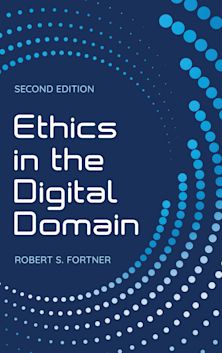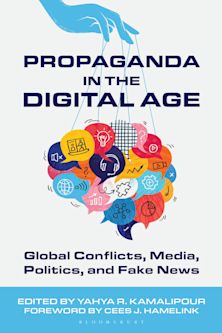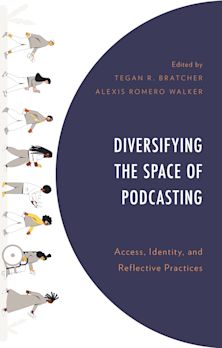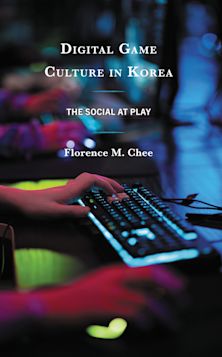- Home
- ACADEMIC
- Communication Studies
- Digital and New Media
- The Civic Web
The Civic Web
Online Politics and Democratic Values
David M. Anderson (Anthology Editor) , Michael Cornfield (Anthology Editor) , F Christopher Arterton (Contributor) , Jerry Berman (Contributor) , Michael X. Delli Carpini (Contributor) , Steven Clift (Contributor) , Michael Cornfield (Contributor) , William A. Galston (Contributor) , Deborah G. Johnson (Contributor) , Kirk L. Jowers (Contributor) , Scott Keeter (Contributor) , Peter Levine (Contributor) , Deirdre K. Mulligan (Contributor) , Trevor Potter (Contributor) , Michael Vlahos (Contributor) , Anthony G. Wilhelm (Contributor) , Langdon Winner (Contributor) , Christopher F. Arterton (Foreword)
- Textbook
The Civic Web
Online Politics and Democratic Values
David M. Anderson (Anthology Editor) , Michael Cornfield (Anthology Editor) , F Christopher Arterton (Contributor) , Jerry Berman (Contributor) , Michael X. Delli Carpini (Contributor) , Steven Clift (Contributor) , Michael Cornfield (Contributor) , William A. Galston (Contributor) , Deborah G. Johnson (Contributor) , Kirk L. Jowers (Contributor) , Scott Keeter (Contributor) , Peter Levine (Contributor) , Deirdre K. Mulligan (Contributor) , Trevor Potter (Contributor) , Michael Vlahos (Contributor) , Anthony G. Wilhelm (Contributor) , Langdon Winner (Contributor) , Christopher F. Arterton (Foreword)
- Textbook
Buy from Bloomsbury eTextBooks
You are now leaving the Bloomsbury Publishing website. Your eBook purchase will be with our partner https://www.vitalsource.com.
Your credit card statement will show this purchase originating from VitalSource Technologies. They will also provide any technical assistance you might require.
You must sign in to add this item to your wishlist. Please sign in or create an account
Description
Political web sites and e-mail lists were novelties in 1996. By 2000, they were a news trend. By 2004, they will be a part of every electoral and policy campaign. News-seekers, activists, and decision makers increasingly turn to the Net as a matter of course. The Civic Web delineates the basic issues, opportunities, and dilemmas posed by the introduction of computer-networked communications into U.S. national politics. Leading scholars from several academic disciplines join pioneer practitioners of online advocacy, discussion, and law in considering how the Internet can host, and even advance, enlightened self-government by a free people in a constitutional republic.
Table of Contents
Chapter 2 1 Reflections on Campaign Politics, The Internet, and Ethics
Chapter 3 2 Cautious Optimism about Online Politics and Citizenship
Chapter 4 3 If Political Fragmentation is the Problem, Is the Internet the Solution?
Part 5 II The Current State of Online Politics
Chapter 6 4 Online Campaigning and the Public Interest
Chapter 7 5 Election Law and the Internet
Chapter 8 6 Digital Grassroots: Issue Advocacy in the Age of the Internet
Part 9 III Citizen Participation and the Internet
Chapter 10 7 Adding in the Net: Making Citizenship Count in the Digital Age
Chapter 11 8 Civic Participation and Technology Inequality: The "Killer Application" Is Education
Chapter 12 9 The Internet and an Informed Citizenry
Part 13 IV The Internet, Democracy, and the Future
Chapter 14 10 E-Democracy: Lessons from Minnesota
Chapter 15 11 The Internet and Dreams of Democratic Renewal
Chapter 16 12 The Politics of a Network World: A Speculation
Product details
| Published | 04 Sep 2002 |
|---|---|
| Format | Ebook (Epub & Mobi) |
| Edition | 1st |
| Extent | 192 |
| ISBN | 9780742573611 |
| Imprint | Rowman & Littlefield Publishers |
| Series | Campaigning American Style |
| Publisher | Bloomsbury Publishing |
About the contributors
Reviews
-
I'm an avid grassroots politician and I highly recommend this book. It helps every citizen think about what a civic space on the Internet should look like and whether Internet connections are an adequate replacement for grassroots.
Pat Schroeder, former member, U. S. House of Representatives
-
The Civic Web is a wonderful collection of very thoughtful commentaries and research studies about the uses of the Internet for political practice and democratic institutions. For anyone interested in the digital media and their likely impact on American political culture, this is an important and informative book.
Ellen Wartella, University of Texas, Austin
-
For all those who scoffed at the Internet's power to change political communications, The Civic Web is a smack with a well-written and argued two-by-four. Professors Anderson and Cornfield have assembled the latest thinking on why the interactivity of the Web will make a difference in our democracy and political discourse. Neither overblown nor understated, these essays provide a sharp and realistic assessment of the state of play today, and it's a hopeful one for those who want to be optimistic about the future of American politics.
Michael McCurry, press secretary to former President Bill Clinton
-
Thanks to David Anderson and Michael Cornfield, we finally have a book of serious thinking about politics and the Internet. The Civic Web is a major achievement and will be the starting point for any discussion about public policy in the Internet era. Anyone who cares about government or technology needs this book.
Rick White, former member, U.S. House of Representatives
-
The editors have produced a book rich in ideas and theory. They have assembled in one volume what is probably the most eminent group of observers yet to comment on this topic. The format makes for brisk reading and a broadly stimulating book. It succeeds well at presenting a survey of its subject and identifying for readers a variety of hypotheses and positions for further exploration. The result is a success and easily one of the most useful books yet on the topic.
Political Science Quarterly
-
David M. Anderson and Michael Cornfield have assembled a valuable time capsule of the hopes and fears for electronic democracy. Will changing the media change the polity? A diverse group of scholars and practitioners provide assessments and predictions about the ways that the Internet may revive, reorder, or stifle political involvement in America.
Samuel L. Popkin, University of California, San Diego, and author of The Reasoning Voter









